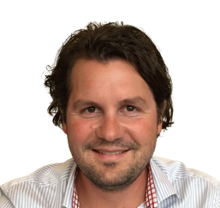Solutions Architecture | Author | Blogger | Speaker | Data Architect
What attracted you to data management or IT, and why did you choose to pursue this career?
I have been passionate about technologies as a kid ever since I saw computers. When I started my first job as a consultant, I mostly worked as an IT or software engineer. I had no intention to make it into data management at that time, although I experienced data modeling, API management, and business intelligence. Ten years later at ABN AMRO, I got a role as an enterprise architect. This job taught me to zoom out, and forced me to apply abstractions in the way of working and thinking. At this same time, data and cloud became hot topics. I jumped into these two trends as a career opportunity and learned they strengthen each other in a positive way.
What has been your greatest career accomplishment so far, and why has it been important to your career?
Discovering I apparently had a talent for building strong storylines, presenting concepts, and bringing ideas to life. I practiced on stage and learned how to influence my audience. The book called “Data Management at Scale” has been the icing on the cake, and brought me closer to other thought leaders in the field.
What are the two or three biggest challenges you face as a data management professional / CDO and how can we address them?
Today’s data management is about organizational change. CDOs need to deal with people who are caught by the past. There’s a deep assumption that centralization is the solution to data management. This includes centralizing all data and management activities using one central team, building one data platform, using one ETL framework, using one canonical model, etc. Future-generation enterprise data landscapes will be organized in completely new ways, so people need to unlearn and let go of some of the beliefs they have. Today’s CDOs are likely to spark resistance, so you need to work hard on a good vision and strategy.
The second is the risk of bad data. If the same data is used repeatedly, the quality and readability become critically important. Building high-quality data pipelines require discipline and patience. CDOs will face resistance from the business due to fast-paced and strong competition: projects which need to go live quickly. You need to strike a balance between short-term value, which includes architecture deviation, and your longer-term data management objectives, which might delay your use cases and business outcome.
How do you see data management / the role of the CDO / IT changing in the next 2 – 3 years?
The coming years will see a paradigm shift for organizations that
place data at the heart of their business. I also foresee the world of software architecture (application integration) and data management coming closer. This movement will be supported by another trend: a shift away from application-based ownership approaches and toward databased ownership approaches. This requires new governance and different target operating models, such as DataOps and MLOps, and a different mindset, including product thinking. Large enterprises will be forced to combine practices with very versatile professionals in many disciplines. This is very unlike today’s data management, which often focuses on data modeling and master data management using a monolithic data landscape.
Do you have any planned next steps for your career?
Not any short-term plans. I enjoy my new career step at Microsoft.
What is the single best piece of advice you have received in your data management / IT career so far? Why has it been so important to you?
Santhosh Pillai, my previous boss, has been a real inspiration. He taught me to apply abstractions in thinking, zooming out, and looking from different perspectives and dimensions. He also encouraged me to read many books and examine external publications. You are a student for the rest of your life.
Can you share something about yourself as a person that people wouldn’t know about you?
I’m into gardening, love cooking, and enjoy drinking high-quality wines. During the weekend I spend most of my time with my three daughters.
If you have any questions about this interview, or if we can be of any service, please do not hesitate to contact us info@ewsolutions.com







